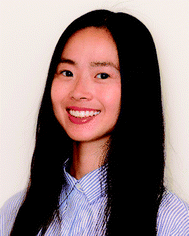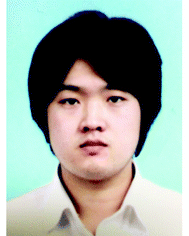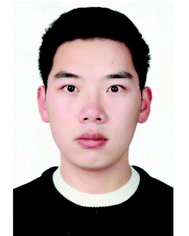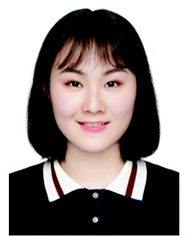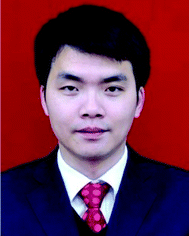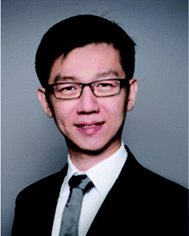Materials Horizons 2018 Outstanding Paper awards
In the 5 years since Materials Horizons was launched, the journal has published exceptionally high quality and innovative materials science from top researchers in their fields. From this year onwards, we would like to take the opportunity to recognize some of the outstanding work published in the journal, as well as the authors behind those articles, by annually awarding an Outstanding Paper prize.In order to choose the most outstanding papers of 2018, we put together a shortlist of articles published during the year based on a variety of metrics including article downloads, Altmetrics, and citations. The shortlist was reviewed by the journal's Editorial and Advisory Board members based on the science presented and potential future impact. Based on this, and on the high quality of content we published throughout the year, we have chosen to not only award our most Outstanding Paper, but also a runner-up and an Outstanding Review in 2018.
We would like to introduce you to the winners of the 2018 Outstanding Paper awards and hope that you enjoy reading their outstanding articles as much as we did. All articles will be free to access until the 31st May 2019 (free to access through a free RSC publishing personal account).
Please join us in congratulating our winners.
Materials Horizons Outstanding Article 2018:
Bioinspired hierarchical composite design using machine learning: simulation, additive manufacturing, and experiment
Grace X. Gu, Chun-Teh Chen, Deon J. Richmond and Markus J. Buehler*
In this outstanding paper, the authors propose an innovative approach to design hierarchical materials using machine learning trained with a database of hundreds of thousands of structures from finite element analysis, together with a self-learning algorithm for discovering high-performing materials where inferior designs are phased out for superior candidates. They say that their new approach can aid in the discovery and fabrication of new material designs with an orders of magnitude increase in computational efficacy over conventional methods.
Grace X. Gu is an Assistant Professor of Mechanical Engineering at the University of California, Berkeley. She received her PhD degree in Mechanical Engineering from the Massachusetts Institute of Technology in 2018. Her current research focuses on creating new materials with superior properties for mechanical, biological, and energy applications using multiphysics modeling, artificial intelligence, and high-throughput computing, as well as developing intelligent additive manufacturing technologies to realize complex material designs previously impossible. Gu is the recipient of several awards, including the Johnson & Johnson Women in STEM2D Scholars Award (2019), the Amazon Research Award (2019), the MIT Meredith Kamm Graduate Women of Excellence Institute Award (2018), the Materials Research Society Graduate Student Medal (2017), the American Ceramic Society Excellence in Materials Science Diamond Award (2017), and the National Defense Science and Engineering Graduate (NDSEG) Fellowship (2015-2018).
Markus J. Buehler is the McAfee Professor of Engineering at MIT, head of the Department of Civil and Environmental Engineering, and leads MIT's Laboratory for Atomistic and Molecular Mechanics. His primary research interests focus on the structure and mechanical properties of biological and bio-inspired materials, to characterize, model and create materials with architectural features from the nano- to the macro-scale. His most recent book, “Biomateriomics” presents a new design paradigm for the analysis of biomaterials using a categorization approach that translates insights from disparate fields such as materials and music.
He is the recipient of many awards including the Harold E. Edgerton Faculty Achievement Award, the Alfred Noble Prize, the Feynman Prize in Nanotechnology, the Leonardo da Vinci Award, and the Thomas J. R. Hughes Young Investigator Award. He is a recipient of the National Science Foundation CAREER award, the United States Air Force Young Investigator Award, the Navy Young Investigator Award, and the Defense Advanced Research Projects Agency (DARPA) Young Faculty Award, as well as the Presidential Early Career Award for Scientists and Engineers (PECASE). In 2018, Buehler was selected as a Highly Cited Researcher by Clarivate Analytics.
Materials Horizons Outstanding Article runner-up 2018:
Unidirectional water delivery on a superhydrophilic surface with two-dimensional asymmetrical wettability barriers
Hui Geng, Haoyu Bai, Yangyang Fan, Shaoyu Wang, Teer Ba, Cunming Yu, Moyuan Cao* and Lei Jiang
In this outstanding paper, the authors demonstrate unidirectional liquid transport by incorporating asymmetric 2D water barriers into a flat superhydrophilic surface. Their method simplifies the design and fabrication of functional interface materials, enabling manipulation of fluid delivery on 2D patterned surfaces.
Moyuan Cao is currently an Associate Professor at the School of Chemical Engineering and Technology, Tianjin University, China. He received his BEng degree (2010) and MSc degree (2013) in Macromolecular Science and Engineering from Zhejiang University, China. In 2016, he received a PhD degree in Materials Sciences under the supervision of Prof. Lei Jiang at Beihang University, China. He is also a member of the State Key Laboratory of Chemical Engineering (Tianjin). He has published over 40 academic papers in Adv. Mater., Mater. Horiz., Adv. Funct. Mater., ACS Nano, etc. His citation number is over 1000 with a H-index of 18. His present scientific interests are focused on mass transferring interfaces tuning by special wettability, including (1) self-propelled fluid delivery; (2) underwater micro-bubble manipulation; and (3) hydrophilic/hydrophobic cooperative Janus interfaces.
Hui Geng is a senior undergraduate student in the School of Chemical Engineering and Technology, Tianjin University, China. He majors in Molecular Science and Engineering, which was jointly developed by Tianjin University and Nankai University. He also studied as an exchange student at UC Berkeley in the summer of 2018. He joined Prof. Cao's lab in 2017, and his current research interests include bio-inspired superwetting materials and microfluidic devices.
Materials Horizons Outstanding Review 2018:
Photocatalytic fixation of nitrogen to ammonia: state-of-the-art advancement and future prospects
Xingzhu Chen, Neng Li,* Zhouzhou Kong, Wee-Jun Ong* and Xiujian Zhao
In this outstanding review, the authors provide an overview of recent developments in ammonia synthesis technology and provide a blueprint for further investigations into next generation catalyst design involving photocatalytic nitrogen fixation and ammonia synthesis.
Xingzhu Chen received her bachelor's degree in Materials Science and Engineering at Wuhan University of Technology in 2016. After that, she continued her education and became a PhD candidate in the State Key Laboratory of Silicate Materials for Architectures (SMART Lab) at Wuhan University of Technology under the supervision of Professor Neng Li, Professor Xiujian Zhao and Professor Wee-Jun Ong (Xiamen University Malaysia). Her current research interests focus on photoelectrochemistry, photocatalysis, and electrochemical CO2 reduction, N2 fixation and other gas conversion for clean energy production using 2D-based nanomaterials. So far, she has authored and co-authored 8 scientific papers in reputable SCI journals such as Materials Horizons, Chem, ACS Nano and Journal of Materials Chemistry A.
Neng Li obtained his PhD degree in Physics from Huazhong University of Science & Technology in 2011. He later became a Research Assistant Professor at Shenzhen Institutes of Advanced Technology, Chinese Academy of Sciences in 2011. He was elected for the “Peacock Talent People” plan, which is a high-level researcher project in Shenzhen, China. After that, he held a postdoctoral position at the University of Missouri - Kansas City (UMKC) under the supervision of Prof. Wai-Yim Ching from 2012 to 2014. He then joined the State Key Laboratory of Silicate Materials for Architectures, Wuhan University of Technology in 2014 as a Full Professor. From 2016 to 2017, he spent one year as a visiting scholar with FRS and Professor A. K. Cheetham at the University of Cambridge. He has authored and co-authored more than 70 papers and attended more than 50 international conferences as an invited speaker and oral presenter. His citations are close to 2200, and his H-index is 27. He is an enthusiastic supporter of efforts to bring science, technology, engineering, and mathematics educational and entertainment content into the lives of young students from elementary age to junior undergraduates.
Wee-Jun Ong received his BEng and PhD degrees in Chemical Engineering from Monash University. In 2015, he was a Visiting Research Fellow at the University of New South Wales and Monash University Clayton Campus, Australia. In 2016, he joined the Institute of Materials Research and Engineering (IMRE), Agency for Science, Technology and Research (A*STAR) in Singapore as a Staff Scientist. Since 2018, he has been an Assistant Professor in the School of Energy and Chemical Engineering at Xiamen University Malaysia. In 2019, he is a Visiting Scientist in the Center for Advancing Electronics Dresden (cfaed) in Prof. Xinliang Feng's group at Technische Universität Dresden, Germany. In 2018, he was named an Emerging Investigator in Journal of Materials Chemistry A. He has authored more than 50 papers published in Chemical Reviews, Chem, Materials Horizons, Nano Energy, ACS Nano, Journal of Materials Chemistry A, Nano Research, Nanoscale, etc. Among them, more than 18 publications are considered as ESI Top 1% Highly Cited Papers and Top 0.1% Hot Papers. His citations are more than 4600 with a H-index of 29. For more details, see: https://sites.google.com/site/wjongresearch/.
We would also like to take this opportunity to thank all authors who have trusted us with publishing their work in Materials Horizons during the last five years.
Dr Sam Keltie, Executive Editor
Professor Seth Marder, Editorial Board Chair
| This journal is © The Royal Society of Chemistry 2019 |

